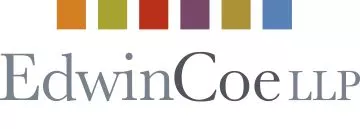In recent weeks HM Revenue & Customs (HMRC) has begun sending letters to both the owners and the occupiers of UK residential property where the registered owner is a non-UK company. The letters to occupiers in particular may be problematic as the confusion created could result in information being supplied which is incorrect.
Earlier in the year HMRC wrote to individual taxpayers in relation to information held about overseas income or gains, you can read more about that here.
HMRC is now sending nudge letters in relation to residential property owned by non-UK companies as a 'nudge' to encourage the disclosure of any rental income or any annual tax on enveloped dwellings (ATED) liabilities.
Two letters are being sent by HMRC:
- To 'the owner' of the property (the non-UK company); and
- To 'the occupier' (for example, a tenant).
Letter to the owner (non-UK company)
This letter refers to the ATED regime and highlights the non-resident landlord (NRL) scheme. It gives instructions on how to register, and requests non-resident company tax returns or ATED returns to be sent, where appropriate.
Letter to the occupier
This letter notifies the occupier of a property owned by a non-UK company that tax may need to be withheld from rent and paid to HMRC by tenants. It also outlines the registration process. The letter also includes a form which requests various details from the occupier, for example the date the individual first moved to the property and the amount of rent paid.
The letter also asks for substantial information on the ownership structure of the property if it is held by trustees.
Action required
In many cases the appropriate registration(s) will be in place, no rent is being paid or no additional tax is due. However, these letters should not be ignored. If no response is received HMRC may decide to subject the matter to further scrutiny, and may raise a formal enquiry.
More importantly, if an unaddressed tax or reporting obligation exists (even if this was not deliberate) action will need to be taken at the earliest opportunity, otherwise the consequences will become more severe – including exposure to increased tax liabilities, interest and significant penalties.
Professional advice should be taken before replying to HMRC to establish an appropriate response.
The content of this article is intended to provide a general guide to the subject matter. Specialist advice should be sought about your specific circumstances.
[View Source]

